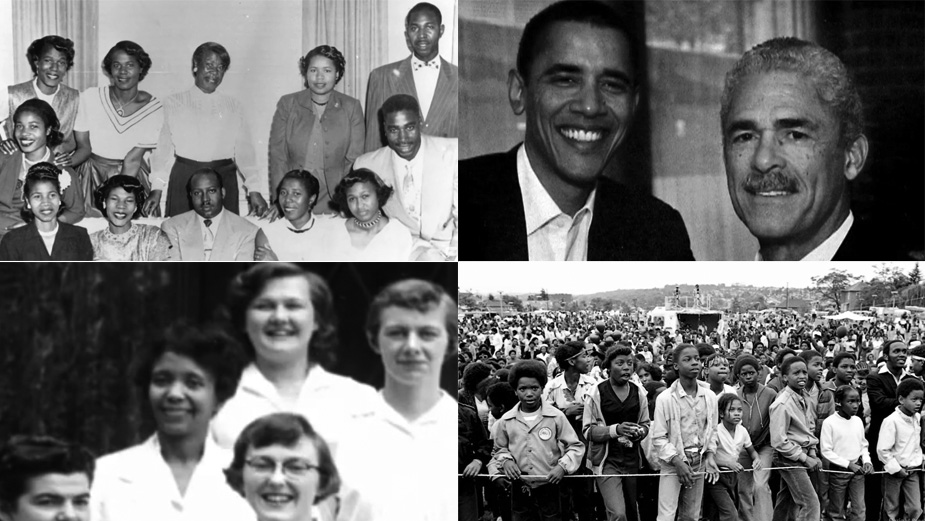
History isn’t behind us. We live in the world it created every day. That’s why it’s so important to us to bring you the stories, old and new, that make us who we are. This February we’re remembering and honoring the legacy of Black Seattleites who played key roles in building the city we know today. We delved into our recent and historical archives to find the activists, artists, icons, and storytellers you need to know.
Neighbors fight to reclaim the Central District’s soul
“We’re not free of the racism that caused that community to be built in the first place, so until we can be freed up from that, we’re no better being integrated.” How did Seattle’s Central District go from the largest Black community in the Pacific Northwest to only 14% Black? Gentrification. That may come as no surprise to many, but the historical details and current fight for reclamation remain largely unknown.
The disappearance and documentation of Seattle’s Central District landmarks
Odds are you’ve driven past the location of the house that once thrived as Annie Smith’s Restaurant without even knowing it. Now demolished, the beloved eatery lives on in the memory of those who worked and ate at the pillar of Seattle’s Black community. Meet the people documenting the community’s history in collaborative and creative ways.
Why you should know the name William Grose
William Grose is on our list of Seattle’s most influential figures. The 19th century businessman is largely credited with developing the Central District into a hub for the Black community. Now the neighborhood has gained a new creative space in the William Grose Center for Cultural Innovation and Enterprise. Some say the transformation of city property into landmarks like this is a step in the right direction toward regaining the Central District’s diminishing sense of identity.
The Untold Stories of Black Suffragettes
White suffragette leaders told investigative journalist and civil rights icon Ida B. Wells that Black women had to march in the back at the first women’s convention in Seneca Falls, New York in 1848. As soon as the parade began, she took her rightful place at the front with her state’s delegation. Learn more about a few of Wells’ contributions; the Delta Sigma Theta Sorority, started by 22 college women, who marched with suffragettes in 1913; and Anna Julia Cooper, who began her life in slavery, and earned a PhD at the age of 67.
Carver Gayton makes history while teaching it
Carver Gayton believes the way to confidence in oneself and one’s community lies in learning about the past. Gayton made history of his own as the first Black FBI agent in Washington and later as the executive director of the Northwest African American Museum where he highlighted the accomplishments of Seattle’s Black entrepreneurs, leaders, and community members.
The Black Heritage Society preserves history for future generations
Jackie Lawson noticed how difficult it was to find stories of Black families, so she decided to do something about it. She joined a team of volunteers with the collections committee of the Black Heritage Society of Washington State. There she uncovered not only her own family history, but that of countless others.
“Not alms, but opportunity:” The past and plans of the Urban League of Metropolitan Seattle
Racist laws and norms kept Black families out of most Seattle neighborhoods into the 1980s. That historical discrimination set a precedent for keeping prospective Black homeowners in the dark when it came to getting the right loans, purchasing houses, and navigating mortgage payments. This 2005 video explains how the Urban League of Metropolitan Seattle bridged that knowledge gap through educational programs. They have historically partnered with the ACLU and NAACP to tackle innumerable civil rights issues in the Northwest.
Jackson Street: A Tale of Two Dads highlights “pure glee” through music and photography
We can’t help but smile at the stories and photos of joy on Jackson Street. Grace Holden recalls a childhood of sneaking into clubs like the Black and Tan and the Rocking Chair where her father Oscar Holden played piano, and Al Smith Jr. says his dad bluffed his way into those same venues with the help of a press camera.
Millie Russell won’t quit
Dr. Millie Russell made history as the first African American to graduate from Seattle University with a bachelor’s degree in medical technology. She learned from U.S. Supreme Court Justice Thurgood Marshall himself, who took her and seven other NAACP college chapter leaders on a trip to witness the effects of Southern segregation firsthand and meet those putting their lives on the line for basic human rights. She tells her personal history of activism and teaching, and why she’ll never really retire.
